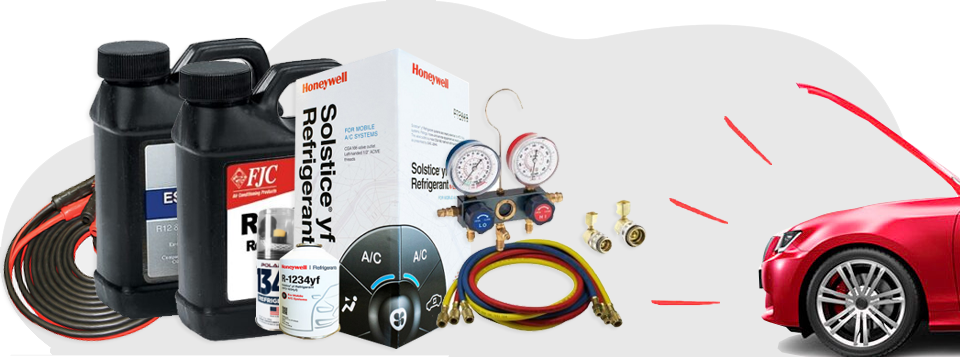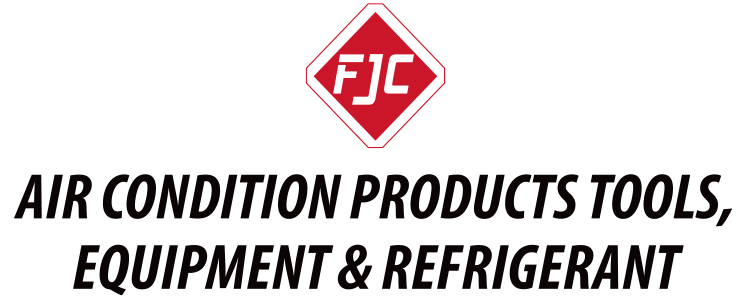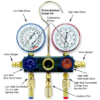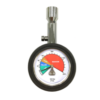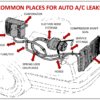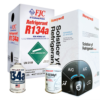Leak Sealers are Not All Created Equal—Read the Fine Print!
If you’ve ever shopped for DIY refrigerant products, you’ve undoubtedly read some product descriptions which sound similar— Refrigerant with ……”Stop Leak”, “Leak Stop”, “Leak Sealer”, “Leak Sealant”, “Conditioners”, “Kwik Seal”, “Quick Stop”, etc. Are these all the same? Are they different? Which is better? Which could harm your system?
Inquiring minds want to know!
In general, there are two different types of leak sealing products/additives the exact same words could be describing, depending upon the manufacturer. These words are often used interchangeably, so it is imperative you read the fine print on the label before using.
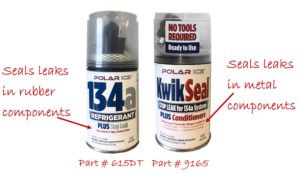
The first is polyol ester oil. Ester oil helps seal leaks in air conditioning systems by conditioning O-rings and other rubber components. (https://www.greenbot.com/) As it ages, rubber will dry and shrink, creating tiny gaps which can allow the refrigerant gas to escape slowly over time. Conditioning with ester oil helps to reinvigorate and plump the rubber components often enabling them to swell enough to fill the tiny gaps and effectively stop the refrigerant from escaping the system. Ester oil will not harm an R-134a a/c system—in fact, the oil helps lubricate the moving parts in the compressor. FJC’s Part # 615DT is a good example of a product which seals leaks in rubber components, as described on its label.
The second leak stop product is a chemical-based sealer specifically formulated for leaks in metal components. These sealants are designed to create a permanent seal in small leaks in condensers and evaporators (usually caused by physical damage to the vehicle). These products react with the moisture in the air at the site of a leak, congeal, and thereby stop the leak. You may read many online reviews and opinions warning to stay away from these products since they can solidify any place in the system where moisture is present—and therefore damage the system as well as recovery equipment. While we do generally agree with that advice, since we cannot endorse what another company may include in its product, we do guarantee that FJC’s Part # 9165 can be used with confidence and will not clog the system or damage recovery/recycle equipment.
So, before using a leak seal product be sure to read the fine print on the label—and only introduce the proper product into your mobile A/C system.
LMK 2021
